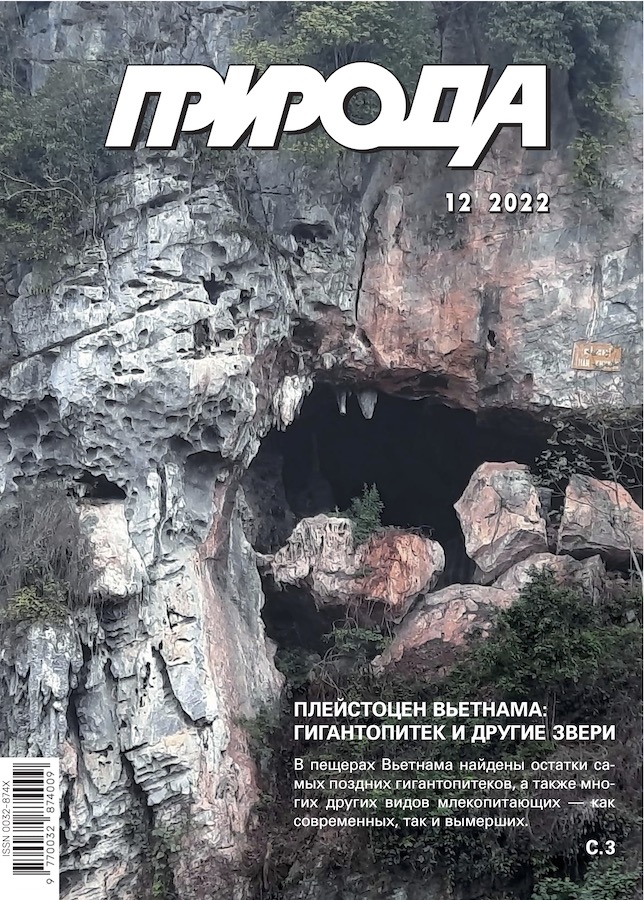2022 Nobel Prize Laureates in Physics: Alain Aspect, John F.Clauser, and Anton Zeilinger
- Autores: Straupe S.S1,2
-
Afiliações:
- Faculty of Physics, Lomonosov Moscow State University
- Russian Quantum Centre
- Edição: Nº 12 (2022)
- Páginas: 40-49
- Seção: Articles
- URL: https://journals.eco-vector.com/0032-874X/article/view/627722
- DOI: https://doi.org/10.7868/S0032874X22120055
- ID: 627722
Citar
Texto integral
Resumo
The Nobel Prize in Physics 2022 was awarded to Alain Aspect (France), John F.Clauser (USA) and Anton Zeilinger (Austria) “for experiments with entangled photons, establishing the violation of Bell inequalities and pioneering quantum information science”. These studies have paved the way for the creation of quantum computers and enabled the existence of truly random number generators and cryptographic key distribution systems, the secrecy of which is guaranteed by the very laws of physics.
Sobre autores
S. Straupe
Faculty of Physics, Lomonosov Moscow State University; Russian Quantum Centre
Email: straups@yandex.ru
Moscow, Russia; Moscow, Russia
Bibliografia
- Einstein A., Podolsky B., Rosen N. Can quantum-mechanical description of physical reality be considered complete? Physical Review. 1935. 47(10): 777–780.
- Bohr N. Can quantum-mechanical description of physical reality be considered complete? Physical Review. 1935; 48(8): 696–702.
- Bell J.S. On the Einstein Podolsky Rosen paradox. Physics Physique Fizika. APS. 1964; 1(3): 195.
- Clauser J.F. et al. Proposed experiment to test local hidden-variable theories. Phys. Rev. Lett. 1969; 23(15): 880–884.
- Kocher C.A., Commins E.D. Polarization correlation of photons emitted in an atomic cascade. Phys. Rev. Lett. 1967; 18(15): 575–577.
- Freedman S.J., Clauser J.F. Experimental test of local hidden-variable theories. Phys. Rev. Lett. 1972; 28(14): 938–941.
- Aspect A., Grangier P., Roger G. Experimental tests of realistic local theories via Bell’s theorem. Phys. Rev. Lett. 1981; 47(7): 460–463.
- Aspect A., Dalibard J., Roger G. Experimental test of Bell’s inequalities using time-varying analyzers. Phys. Rev. Lett. 1982; 49(25): 1804–1807.
- Aspect A., Grangier P., Roger G. Experimental realization of Einstein-Podolsky-Rosen-Bohm Gedankenexperiment : a new violation of Bell’s inequalities. Phys. Rev. Lett. 1982; 49(2): 91–94.
- Hensen B. et al. Loophole-free Bell inequality violation using electron spins separated by 1.3 kilometres. Nature. 2015; 526(7575): 682–686.
- Shalm L.K. et al. Strong loophole-free test of local realism. Phys. Rev. Lett. 2015; 115(25): 250402.
- Giustina M. et al. Significant-loophole-free test of Bell’s theorem with entangled photons. Phys. Rev. Lett. 2015; 115(25): 250401.
- Schrödinger E. Probability relations between separated systems. Mathematical Proceedings of the Cambridge Philosophical Society. 1936; 32(3): 446–452.
- Bennett C.H. et al. Teleporting an unknown quantum state via dual classical and Einstein—Podolsky—Rosen channels. Phys. Rev. Lett. 1993; 70(13): 1895–1899.
- Bouwmeester D. et al. Experimental quantum teleportation. Nature. 1997; 390(6660): 575–579.
- Kwiat P.G. et al. New high-intensity source of polarization-entangled photon pairs. Phys. Rev. Lett. 1995; 75(24): 4337–4341.
- Klyshko D.N. Coherent photon decay in a nonlinear medium. JETP Letters. 1967; 6(1): 490.
- Pan J.-W. et al. Experimental entanglement swapping: entangling photons that never interacted. Phys. Rev. Lett. 1998; 80(18): 3891–3894.
- Kimble H.J. The quantum internet. Nature. 2008; 453(7198): 1023–1030.
- Ekert A.K. Quantum Cryptography and Bell’s Theorem. 1992: 413–418.
- Vazirani U., Vidick T. Fully device independent quantum key distribution. Commun ACM. 2019; 62(4): 133–133.
- Sangouard N. et al. Quantum repeaters based on atomic ensembles and linear optics. Rev. Mod. Phys. 2011; 83(1): 33–80.
- Kok P. et al. Linear optical quantum computing with photonic qubits. Rev. Mod. Phys. 2007; 79(1): 135–174.
Arquivos suplementares









